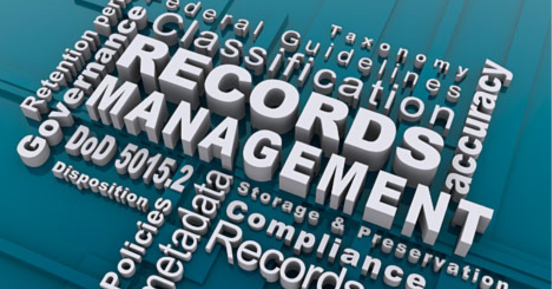Records management vs. information governance: what is the difference?
The terms "records management" and "information governance" are often used interchangeably, as if they have identical meanings.

The terms "records management" and "information governance" are often used interchangeably, as if they have identical meanings. To a certain extent, the two practices do have similar purposes, but it is important for businesses to note the distinctions between them.
Understanding records management vs. information governance is an important part of overall information management. With that said, the distinction can pose a difficult challenge for businesses, especially when organisations intend to revamp the way their information is managed.
Records management vs. information governance
First and foremost, it is important to understand that records management and information governance are two separate tiers of scale. In fact, records management falls under the umbrella of information governance. According to ARMA International, information governance is the strategic framework composed of standards, processes, roles and metrics that hold organisations and individuals accountable to create, organise, secure, maintain, use and dispose of information in ways that align with and contribute to the organisation's goals.
Records management, on the other hand, is the systematic management of records and information through their lifecycle. It includes the analysis, design, implementation and management of manual and automated systems. Records management is based on software application, securing records and data and executing policies and retention. The duties of records management departments often differ among companies, since each department will manage its responsibilities in terms of its company's overarching strategies.
How the practices work in tandem
Based on these definitions, information governance refers to the strategic element of designing and organising information management - it is a broad term that applies to the entire organisation. Records management represents the actual implementation of information management plans and the manual and automated systems that manage records.
For information governance to be effective, the company as a whole must support it. It is not just a simple policy or group of guidelines. It is a wide-ranging approach built to support the organisation's objectives and compliance standards, and it affects the entire chain within the organisation.
Balancing records management and information governance
If businesses focus primarily on records management efforts, software application and security, they may not see the bigger picture that proper information governance brings. At the same time, if organisations focus on the overall strategy and ensuring information governance goals are met, they may be neglecting the records management aspect. That is why it is crucial for companies to have an effective plan for both information governance and records management.
In the future, many organisations and industries will manage their information by uniting information governance and records management. However, this approach will only be effective if businesses and their employees first fully understand the difference between the two.
Related resources
View More Resources
What is document archiving?

Privacy Act Changes: Essential Governance Practices
